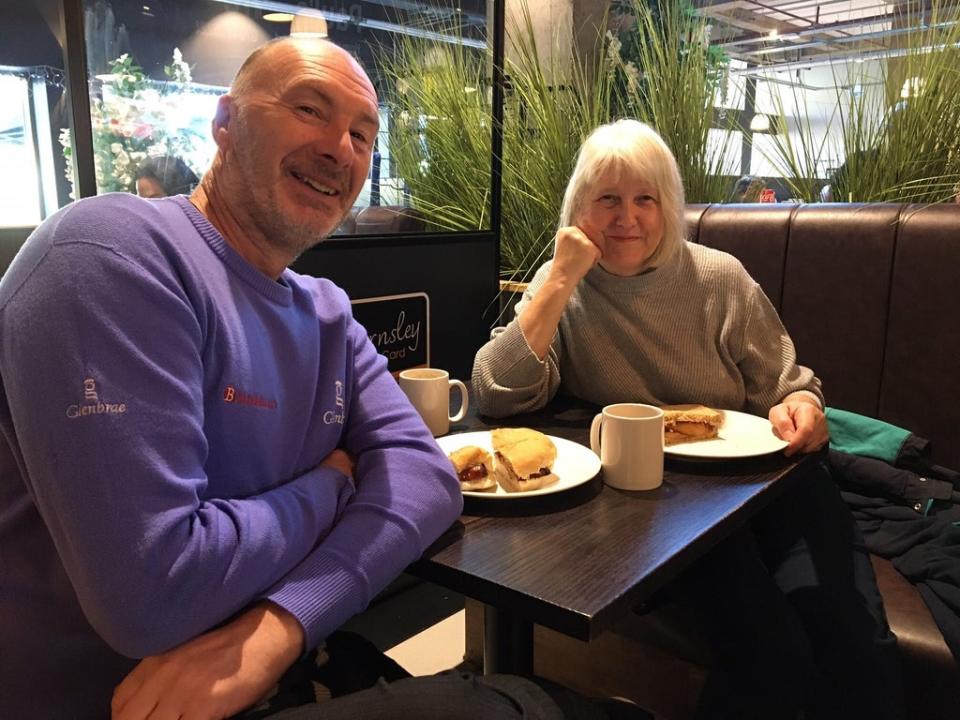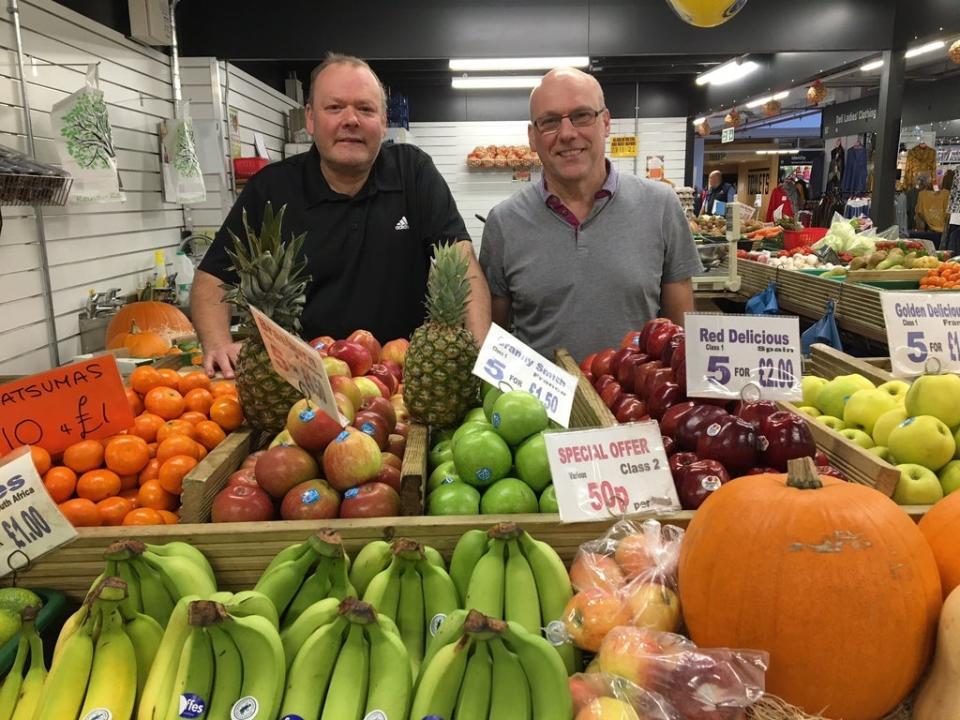‘You can’t budget with a card’: Cash still king at Barnsley Market despite data showing UK use in free fall

It’s just gone breakfast time and, at Barnsley Market, this week’s talk of a cashless society is enough to put Steve Markham off his sausage sandwich.
“I work bloody hard for my money,” the 56-year-old says as he settles down with a bap bought from Kay’s Cafe. “So I like to be able to see it when I’m spending it. It gives you a sense of its worth.”
He pauses for a bite of his butty. “I suppose I sound quite old-school,” he decides.
New data revealing the UK is increasingly turning its back on cash has led to suggestions that the days of notes are numbered; that the age of the coin is coming to a close.
People are visiting ATMs less and not taking out as much when they do, according to the research by machine operators Link. It estimates daily withdrawals across the country have dropped by £100 million since 2019. In London and Edinburgh, especially, cash is becoming a creature of the past. Contactless cards and digital apps are replacing it fast.
Yet in the UK’s small towns and least well-off communities, such a revolution may meet resistance for some years still, it seems.
In places like Barnsley – the 38th most deprived area in England – cash remains king.
“Paying on card devalues what you’ve earned,” says Markham, a therapy assistant with the NHS. “You can’t budget with it. With money, you go out with £20 and you know where it’s going – a coffee here, a drink there. With a card, it just runs away from you. You look at your statement a couple of days later and: ‘how much?!’”

Received wisdom has it that this attitude is – to use Markham’s own words – old-school.
Cash, according to this theory, has largely become the preserve of an older generation still suspicious of technology and in touching distance of a time when keeping a stash of notes under a floorboard was considered just as prudent as keeping a box of candles in a cupboard.
But while traders at the town’s market reckon there is a definite age divide on card use, it is not quite as clear cut as some would suggest.
“It’s definitely older people [who use cash] more but it’s wrong to say that young people don’t,” says Holly Apsee, the 25-year-old who runs the Daddy Beanz coffee shop here. “They do. Or, at least, they do in Barnsley. Maybe we’re just stuck in our ways?”
Her partner Johnny Morris tells a story from last year when he was managing the market’s bar, a space serving craft beer and artisan gin with a terrace overlooking the main square. In the weeks after the first coronavirus lockdown ended, he tried to implement a card-only policy to reduce transmission risk.
“And people just weren’t having it,” the 36-year-old says. “They were kicking off, like: ‘This is legal tender, take my money!’”
What did he do? “What could I do?” he shrugs. “Realised it wasn’t going to work and took their money.”

Received wisdom also has it that the pandemic probably sped up what was previously a gradual shift towards digital payments. In the age of Covid-19, swapping coins and notes suddenly felt like a health hazard. But, again, here on the ground in this South Yorkshire town, the theory comes with caveats.
“Cash has been going up again for us through the summer,” says Morris. “It’s going to need more than a pandemic to change people’s habits.”
Sue Brown may be proof of this, as she herself admits.
The 66-year-old runs Pat’s For Pants, the market’s legendary underwear stall where the catchphrase – proudly displayed next to the name – is “big is beautiful”.
Brown has worked here for 50 years: first as an assistant and now as the manager. But it was only in 2018 that the place got a card reader.
“None of our customers ever asked to pay that way and I didn’t see the point in getting involved with all that,” she says as she arranges a display of winter vests and thermal knickers. “It was a hassle. Why bother with it?”
She got one when the market underwent a mammoth £150m redevelopment but still takes most of her sales in cash. She holds no truck with the suggestions the future may be cashless. “Not in my [stall], it won’t be,” she declares.

Phil Ashton is less emphatic. He runs Dave and Dave Fruit and Veg (neither owners are called Dave), and, while 90 per cent of his customers still pay the traditional way, he is noticing a gradual shift. Only yesterday, he had a teenager who got her card out for a 39p transaction.
“New one on me, that,” the 59-year-old exhales. “But it’s the way the world’s going. For us as a business, cash or card, it makes no difference. Card is probably better because it means you’re not having to handle money and you don’t have those security issues but I don’t see an end to cash any time soon.”
Why not? “Too many people still want to use it,” he says. “It’s been with us for centuries, hasn’t it? That’s not going to change overnight.”
Read More
Oliver and Olivia top of the list for most popular boys and girls’ names in England and Wales
UK ‘must do more than booster jabs’ to avert threat of Christmas lockdown - live
Heathrow passengers forced to fly without bags in half-term disruption
Young Hong Kong nationals who fled police brutality ‘languishing’ in UK asylum system

 Yahoo News
Yahoo News 
